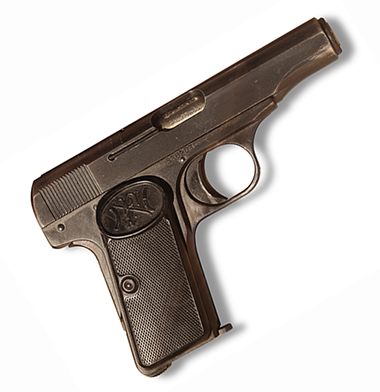
“Despite their reputation as terrifying and unkempt wild men, they were actually among the elites of their society and the finest warriors the Viking world had to offer”
By Noah Tetzner
SHIELD BITING, SWORD-wielding, frenzied, howling madmen, as strong bears and as tough as bulls — this is the enduring image of the Viking berserker that has long captured our imaginations. In fact, our idea of the berserker as an uncivilized, unkempt, warrior, eagerly charging into battle committing acts of sheer barbarism can be traced back as far as 13th-century historian Snorri Sturluson’s description of them:
Odin’s men rushed forwards without armor,
were as mad as dogs or wolves, bit their shields, and were strong
as bears or wild bulls, and killed people at a blow, but neither
fire nor iron told upon themselves. These were called Berserker.
Indeed, our idea of the berserker hasn’t changed much in 800 years. Yet despite their reputation as terrifying and unkempt wild men, they were actually among the elites of their society and the finest warriors the Viking world had to offer — noble savages; the ultimate contradiction. Here are eight epic facts about Viking berserkers that are bound to surprise, enthral and fascinate.

They were shock troops and royal bodyguards
According to Old Norse literature, berserkers were the deadliest Viking soldiers. As members of the king’s warband, they fought at the front of his armies as shock troops and were considered the monarch’s personal champions. Also serving in the royal retinue, berserkers acted as bodyguards for Viking rulers. In Sturluson’s famous Heimskringla or “King’s Saga,” we learn that the berserkers were often placed in the prow of long boats during assaults and were the first to wade into the fight on hostile shores.

They were holy warriors
In addition to being the king’s own men, berserkers were also servants of the highest god in Norse Mythology. Old Norse literature has referred to them as “Warriors of Odin,’’ a title that would have held tremendous significance in their culture. In mythology of the period, Odin was the god of war, but also of wisdom and poetry. He was very much a deity for the most influential of Viking culture. This suggests that berserkers weren’t just the best soldiers the Scandinavians had to offer, but likely came from the upper strata of their society.

They were too brave for armour
Debate continues as to the etymology of the word “berserker.” According to one popular interpretation, the name means “shirtless.” It comes from the Old Norse word ber, which means “bare” or “without,” and serkr or “shirt.” Of course, ber could also be interpreted as “bear,” indicating the warriors clad their torsos in animal skins. This also makes sense, when remembering that berserkers were also known as Úlfhéðnar or “wolf-coats.”

They were masters of psychological warfare
Before crossing swords with their enemies, berserkers would famously put on elaborate displays of frenzied bloodlust, during which they’d howl like animals, bite into the rims of their shields, self-flagellate and even froth at the mouth. While watching such episodes, it wasn’t uncommon for terrified opponents to break ranks and flee. In fact, the practice made such an impression on the Anglo-Saxons that the word berserk eventually found its way into the English language for any unhinged, wild or violently hysterical behaviour.

They may have experimented with mind-altering drugs
Over the centuries, many have attributed berserkers’ deranged behavior to their ingestion of a type of hallucinogenic mushroom capable of inducing a trance-like state. In 1784, a Swedish theologian named Samuel Ödmann concluded that many of the warriors might have been under the influence of the same sorts of fly agaric mushrooms used by Siberian shamans. While the theory is certainly intriguing, many Viking scholars have challenged it. Critics of the psychedelic hypothesis point out that it’s more likely that berserker rages were pure theatre – a Medieval version of shock and awe.

They terrified all of Christendom
Vikings travelled far and wide, from the Mediterranean to the New World, fighting everyone from North African Muslims to North American Indians. Yet, it was the Medieval Christians who seemed to have feared them most. In the story of the conversion of Iceland to Christianity, there are many accounts of berserkers terrorizing the countryside, and in later accounts they were referred to as a “heathen devil,” most likely on account of their fits that must have resembled demonic possession. In fact, berserkers were so dreaded, that Scandinavian legal codes, including the Icelandic Grágás, eventually outlawed even being a berserker.

Their legend continues
The enduring image of berserkers described in Old Norse literature has long fascinated. Even centuries later, their sagas continue to arouse intrigue and speculation. They live on in our literature, films and video games. Even our modern language contains references to their rampages. Not a bad legacy.
 Noah Tetzner is the host of the popular podcast The History of Vikings. With more than 50,000 listeners, the podcast is available through iTunes. Every week, Tetzner is joined by a Viking Age/Norse Mythology expert to discuss the endlessly fascinating history of the Vikings. Listen HERE.
Noah Tetzner is the host of the popular podcast The History of Vikings. With more than 50,000 listeners, the podcast is available through iTunes. Every week, Tetzner is joined by a Viking Age/Norse Mythology expert to discuss the endlessly fascinating history of the Vikings. Listen HERE.









